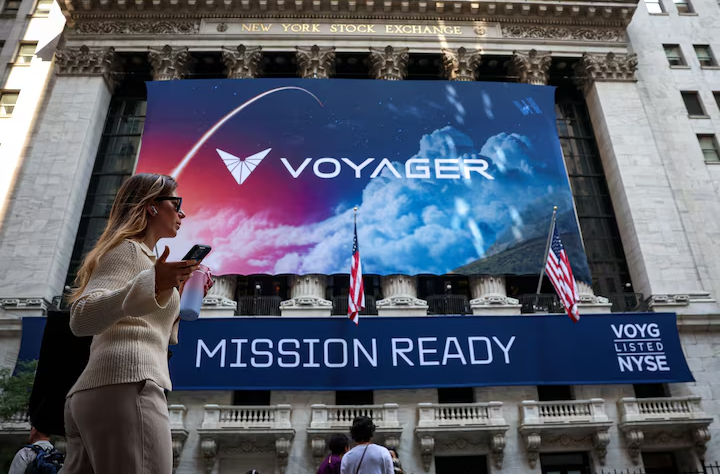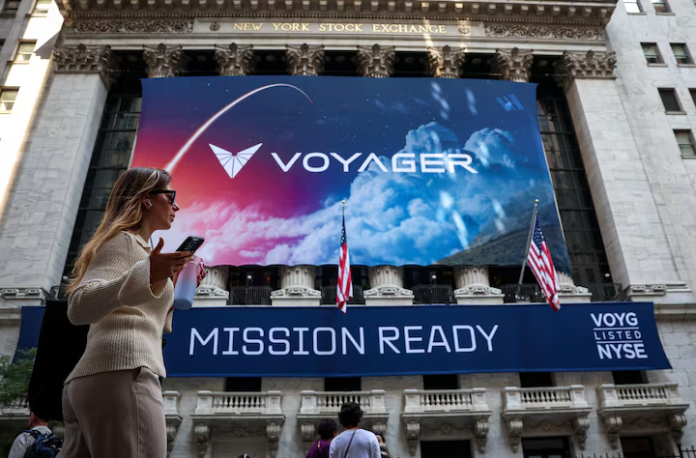In a remarkable market debut, Denver-based space and defense firm Voyager Technologies made headlines after its shares more than doubled in value on the New York Stock Exchange (NYSE), propelling its valuation to a massive $3.8 billion.
The company’s stock opened at $69.75 per share, up an astonishing 125% from its IPO price of $31. With nearly 12.4 million shares sold, Voyager successfully raised $382.8 million in an upsized initial public offering—marking one of the most successful space sector IPOs in recent memory.
Founded in 2019, Voyager develops cutting-edge technologies for defense and space missions. Its client list includes U.S. government agencies and major aerospace players. As of March 31, the company reported a contract backlog worth $179.2 million, showcasing strong demand for its innovative systems.
Investors are showing immense confidence in the space sector, particularly as defense policies shift under President Donald Trump’s second term. His proposed $175 billion Golden Dome initiative aims to create a missile defense shield across the United States—boosting funding and public interest in space-based defense solutions.
“Strategic government backing amid increased defense spending somewhat shields these firms from tariff-induced supply chain risks,” said Lukas Muehlbauer, research associate at IPOX.
Voyager’s listing sends a strong signal that the commercial space industry is maturing. Rob Desborough of Seraphim Space Investment Trust, a major Voyager investor, called the IPO a “milestone” for the broader industry.
The company’s growing reputation was further cemented in 2024, when defense contractor Lockheed Martin selected Voyager to supply propulsion and optical guidance systems—key components in U.S. defense strategies against long-range missile threats.
Voyager is also playing a central role in NASA’s post-ISS plans. The agency awarded Voyager a $217.5 million contract to build Starlab, a next-gen space station, in collaboration with Airbus, Mitsubishi, and Palantir. Starlab is poised to become the successor to the International Space Station (ISS), representing the next leap in orbital infrastructure.

Voyager’s successful IPO mirrors the recent public debut of fellow space and defense firm Karman, whose shares also doubled after listing earlier this year. Analysts say this growing trend is a reflection of high investor appetite for aerospace and defense innovation.
“The defense sector has high entry barriers, which limits the number of IPO-ready companies. But the current geopolitical climate is encouraging established firms to go public,” Muehlbauer added.
Investment giants like Janus Henderson and Wellington Management had already expressed interest in buying up to $60 million worth of Voyager shares—and they weren’t alone in spotting its potential.
As the demand for space and defense technology grows globally, Voyager Technologies has clearly positioned itself as a leading force in the next generation of aerospace innovation.



